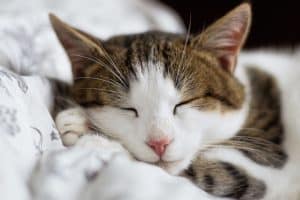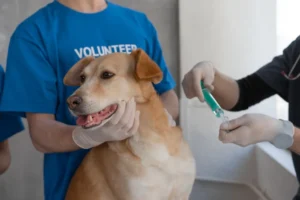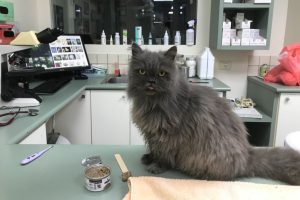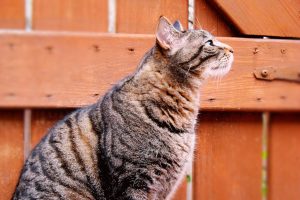Cats are beloved pets in many households, but their health needs can sometimes be a mystery to their owners. One common question that arises is, “Why do cats get distemper shots?”
Distemper shots, also known as feline distemper vaccines, are crucial for protecting cats against serious and potentially deadly diseases. These shots help boost the cat’s immune system and prevent illnesses that can be easily spread among felines.
What is Distemper in Cats?
Distemper, also known as feline panleukopenia, is a highly contagious viral disease that can be fatal in cats if left untreated. This serious threat attacks rapidly dividing cells in the body, particularly in the intestines and bone marrow, leading to severe illness and even death.
Feline distemper symptoms include fever, vomiting, diarrhea, lethargy, and dehydration. The virus can survive for extended periods in the environment, making it easy to spread through contact with infected cats, contaminated objects, or even through the air.
Without proper vaccination, cats are at risk of contracting distemper and experiencing its devastating effects. That’s why it’s crucial to vaccinate your feline friend against this dangerous disease to ensure their health and well-being.
For more information on feline distemper and its prevention, you can visit the American Veterinary Medical Association’s website here.
How Do Distemper Shots Work?
Distemper shots, also known as vaccines, work by stimulating the cat’s immune system to produce antibodies against the virus that causes feline distemper. These antibodies provide protection against the disease, helping the cat fight off the virus if they are ever exposed to it in the future.
When a cat receives a distemper shot, the vaccine contains a modified form of the virus that is weakened or inactivated. This allows the cat’s immune system to recognize the virus and create a defense mechanism without causing the actual disease.
Booster shots are often recommended to maintain immunity levels and ensure long-term protection against feline distemper. It’s essential to follow your veterinarian’s vaccination schedule to keep your cat safe from this potentially deadly disease.
By vaccinating your cat against distemper, you are taking a proactive step in safeguarding their health and well-being. Don’t wait until it’s too late – protect your furry friend today with distemper shots.
When Should Cats Get Distemper Shots?
Cats should receive distemper shots as kittens. These vaccinations are typically given in a series of three to four shots between 6-16 weeks of age. The initial vaccination should be followed by booster shots to ensure long-lasting immunity.
After the initial series, adult cats should receive booster shots every 1-3 years to maintain protection against the feline distemper virus. Consult your veterinarian to create a personalized vaccination schedule based on your cat’s health, lifestyle, and risk factors.
Are Distemper Shots Safe for Cats?
Distemper shots are generally safe for cats and essential in preventing serious illness. The vaccines are thoroughly tested for safety and effectiveness before being recommended by veterinarians. However, some cats may experience minor side effects such as mild fever or soreness at the injection site.
It’s crucial to weigh the benefits of vaccination against the small risks associated with any medical procedure. The protection distemper shots provide far outweighs the potential side effects, keeping your feline friend healthy and safe from feline distemper.
Proper vaccination not only safeguards your cat but also helps protect the community of felines by preventing the spread of the highly contagious feline distemper virus. Remember, always discuss any concerns or questions about vaccination with your veterinarian to make informed decisions regarding your cat’s health.
What Happens if a Cat Doesn’t Get Distemper Shots?
When a cat doesn’t get distemper shots, it is at risk of contracting feline distemper, a highly contagious and potentially fatal viral disease. This disease, also known as feline panleukopenia, can lead to severe symptoms such as vomiting, diarrhea, dehydration, and even death, especially in kittens or cats with weakened immune systems. Without vaccination, an unprotected cat can easily spread the virus to other felines in the household or community, causing a dangerous outbreak.
Regular distemper shots are crucial to prevent this deadly disease and protect your furry friend from unnecessary suffering. Vaccination helps boost the cat’s immune system, preparing it to fight off the virus if exposed. It’s a simple and effective way to ensure your pet’s health and well-being.
In addition to risking your cat’s health, neglecting distemper shots can result in costly vet bills for treatment and potentially devastating emotional distress. Prevention is always better than cure when it comes to the health and safety of your beloved feline companion.
Can Cats Get Sick From Distemper Shots?
Many pet owners worry about potential side effects or illnesses resulting from distemper vaccinations, but rest assured, these shots are generally safe and well-tolerated by cats. Side effects are usually mild and temporary, including slight fever, lethargy, or soreness at the injection site. These reactions are normal as the cat’s immune system responds to the vaccine.
Serious adverse reactions to distemper shots are rare but can occur in some cases. It’s essential to discuss any concerns with your veterinarian, as they can provide personalized advice based on your cat’s health history and individual needs. Remember, the benefits of vaccination far outweigh the minimal risks involved.
By keeping your cat up to date on distemper shots, you are taking a proactive step in safeguarding their health and preventing the spread of dangerous diseases. Regular vaccinations ensure a happy and healthy life for your beloved feline friend.
And remember, vaccination not only protects your cat but also contributes to the overall well-being of the entire feline population by reducing the risk of disease outbreaks. Vaccinating your cat is not just a choice for their health but also a responsibility to the community of pet owners and their furry companions.
For more information on feline distemper and vaccination, consider checking out this helpful resource from the American Veterinary Medical Association: AVMA Feline Distemper Vaccination Guidelines
Are There Alternatives to Distemper Shots for Cats?
While distemper shots are the most common and effective way to protect your furry friend from deadly diseases like feline distemper, there are some alternatives that cat owners may consider. One option is homeopathic nosodes, which are natural remedies that some believe can help boost a cat’s immunity. However, it’s essential to note that these alternatives are not scientifically proven to provide the same level of protection as traditional vaccinations.
Another option is titer testing, which measures the level of antibodies in your cat’s blood to determine if they still have immunity to a particular disease. This can help determine if a booster shot is necessary. However, titer testing can be more expensive and may not be as readily available as traditional vaccinations.
Ultimately, while alternatives exist, distemper shots are the recommended and most effective way to protect your cat from dangerous diseases. It’s always best to consult with your veterinarian to discuss the best vaccination options for your feline friend.
How Much Do Distemper Shots Cost for Cats?
The cost of distemper shots for cats can vary depending on where you live, the veterinarian you visit, and whether your cat needs any additional vaccinations or services. On average, a distemper shot for a cat can range from $15 to $28 per vaccine. Some veterinarians may also offer packages that include multiple vaccinations at a discounted rate.
If you’re concerned about the cost of vaccinations, there are some options available to help. Some animal shelters and rescue organizations offer low-cost vaccination clinics for cats and other pets. Additionally, pet insurance plans may cover a portion of the cost of vaccinations, so it’s worth looking into if you want to help offset the expense.
Remember, the cost of vaccinations is a small price to pay compared to the potential cost of treating a sick cat. Keeping your furry friend up to date on their vaccinations is essential for their health and wellbeing.
Pro Tip: Some pet stores and clinics offer discounted vaccination days, so keep an eye out for those opportunities to save on your cat’s essential shots.
Fun Facts About Distemper Shots
Distemper shots for cats are essential in protecting them from a highly contagious viral disease. Did you know that these vaccines are typically administered in a series of shots starting at around 8 weeks old? This early intervention is crucial in building their immunity against the virus and ensuring their long-term health.
Contrary to popular belief, a distemper shot does not give cats direct immunity against the distemper virus. Instead, it stimulates their immune system to produce antibodies that can fight off the virus if they come into contact with it. So, it’s like giving them a superhero suit to gear up for any potential battles!
It’s important to remember that distemper shots need to be boostered regularly to maintain their effectiveness. Generally, cats will require booster shots every 1-3 years to ensure they stay protected against the virus. So, mark your calendars and make sure your furry friend stays up to date on their vaccinations!
Fun Fact Bonus: Did you know that distemper shots are often combined with other vaccines to protect cats against multiple diseases in one shot? This not only makes it more convenient for pet owners but also ensures comprehensive protection for their beloved feline companions.
The Importance of Distemper Shots for Indoor Cats
For indoor cats, you may wonder if they really need distemper shots since they have limited exposure to the outside world. However, even indoor cats can be at risk of contracting the distemper virus through contact with humans or other pets that have been outdoors. Therefore, it’s crucial to ensure they receive their distemper shots regularly to keep them safe and healthy.
By vaccinating indoor cats against distemper, you not only protect them from potential exposure to the virus but also contribute to overall community immunity. In the unlikely event that an indoor cat does come into contact with the distemper virus, their vaccination can help prevent the spread of the disease to other pets in the area. So, by ensuring your indoor cat stays up to date on their shots, you’re not just protecting them but also playing a role in promoting the health of the larger pet population.
Alex, a passionate animal lover, has experience in training and understanding animal behavior. As a proud pet parent to two dogs and three cats, he founded AnimalReport.net to share insights from animal experts and expand his knowledge of the animal kingdom.




